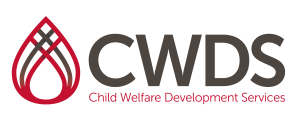CWDS Curriculum
Interventions with Oppositional Defiance and Reducing Power Control or Struggles
Level: Advanced Practice-Lineworker
Credits: 6
Intended Audience: Child Welfare and other agency related staff at all levels, who interact with adolescents
Intended Objectives:
- To distinguish between motivations for oppositional defiance
- To explore attachment and conduct disorders and consequent tendencies toward defiant behavior
- To outline the role of discipline in the development of clarifying cause and effect relationships
Topics Include:
- Relationship between defiance and neurological disorders
- Ingredients of attachment and conduct disorders
- Interventions to avoid power-control struggles
- Teaching youth to understand consequences
- Developing positive self-esteem
CalSWEC Competencies Addressed:
1.4 Participant understands the influence and value of traditional, culturally based childrearing practices and uses this knowledge in working with families.
2.3 Participant recognizes and accurately identifies physical, emotional, and behavioral indicators of child abuse, child neglect, and child sexual abuse in children and their families.
2.8 Participant understands the dynamics of family violence and can develop appropriate, culturally sensitive case plans to address these problems.
2.15 Participant understands the value base of the profession and its ethical standards and principles, and practices accordingly.
2.16 Participant understands and can appropriately utilize authority and power in professional relationships.
2.17 Participant demonstrates the ability to assess his or her own emotional responses to clients, co-workers, and situations in which the worker’s values are challenged.
2.18 Participant demonstrates the ability to engage and work with involuntary clients.
3.5 Participant demonstrates understanding of how the strengths perspective and empowerment approaches can influence growth, development, and behavior change.
4.8 Participant is aware of organizational risk management issues and is able to appropriately resolve potentially harmful situations.
7.5 Participant demonstrates understanding of the dynamics of trauma resulting from family conflict, divorce, and family violence.
Posted In:Independent Living Skills & Youth
Interventions, Services & Resources



